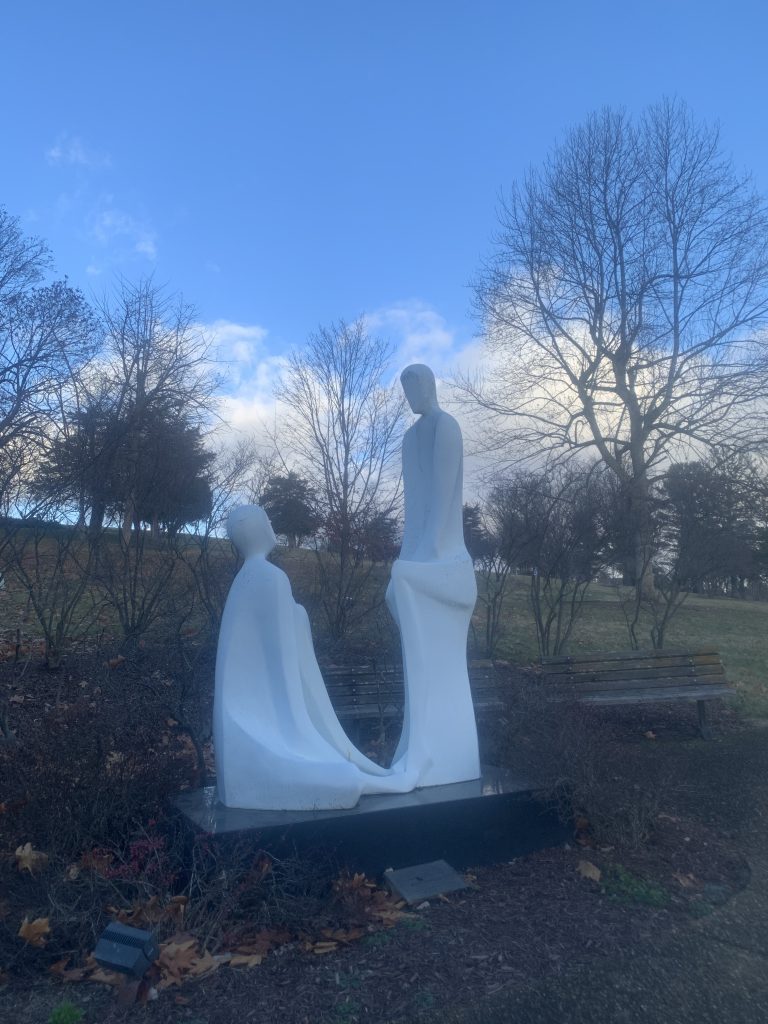by Marta Castillo
Every group or process I have been a part of has required submission and humility. Before I became a pastor, I thought that pastors and leaders had control in their church and organization, and they were able to get things to go their way. When I became a pastor, especially a pastor on a team with two other pastors, male, one African American and one Latino, in a congregation that was intercultural, I realized that I only got “my” way about 10% of the time. There was a lot of submission to God and to the members of the congregation where I served. It was freeing, humbling, and occasionally annoying.
As the Pathways Steering Team, our diverse group from all over the conference has worked together over the last year and a half on strategic planning and preparing a recommendation about affiliation with Mennonite Church USA. There have been countless opportunities for us to learn to submit to God and to each other. The reality is that none of us are in control or can get our own way. All of us are seeking to honor God by being submitting to the leading of the Holy Spirit and to the others in our group and the conference. Reverent submission is honored by God.

We seek to follow the way of Jesus in Philippians 2 which asks, “Does belonging to Christ help you in any way? Does his love comfort you at all? Do you share anything in common because of the Holy Spirit? Has Christ ever been gentle and loving toward you? If any of these things has happened to you, then agree with one another. Have the same love. Be one in spirit and in the way you think and act. By doing this you will make my joy complete. Don’t do anything to get ahead. Don’t do it because you are proud. Instead, be humble. Value other more than yourselves. None of you should look out just for your own good. Each of you should also look out for the good of others. As you deal with one another, you should think and act as Jesus did.” (Philippians 2:1-5, NIRV)
The posture of submission to God results in humility towards God and one another. For the Pathways Team, it has created fertile ground for unique ideas, unexpected twists and turns, curiosity, and attention to the parts of the body that seem weaker, less represented with opportunities to honor their voice (c.f. I Corinthians 12:12-26). Time and again we are seeing the fruit of submission to another God and the “other,” not in forming the perfect strategic plan, but in honoring God and one another. The way of the Lamb of submission to God leads to honoring God and being honored by God (c.f. Revelation 5:9-12).

I am currently reading Humility Illuminated by Dennis Edwards (which I highly recommend). In Chapter 3, he writes about how “indispensable humility is for establishing and maintain Christian community…humility is how love blossoms.” (p.12)
In every meeting, in decision making, in conflict, and transition, we must strive for submission to God, considering others better than ourselves, remaining silent so that others may speak, waiting on God, and believing the intercultural value of mutual transformation open the door to God’s way being revealed and to obedience. We submit to one another to honor each other, and we are changed by the experience. We die to self and end up producing fruit of righteousness.
The Pathways Steering Team was set up to be representative of the conference. I have heard it said that if we can work together, hear one another, and together present a plan and recommendation to the rest of the conference, then there is hope that the whole of Mosaic can do the same. Walking humbly with God and with each other will be essential for the pathway forward.

Marta Castillo
Marta Castillo is the Associate Executive Minister for Mosaic Conference. Marta lives in Norristown, PA, with her husband, Julio, and has three sons, Christian, Andres and Daniel and one granddaughter, Isabel.
The opinions expressed in articles posted on Mosaic’s website are those of the author and may not reflect the official policy of Mosaic Conference. Mosaic is a large conference, crossing ethnicities, geographies, generations, theologies, and politics. Each person can only speak for themselves; no one can represent “the conference.” May God give us the grace to hear what the Spirit is speaking to us through people with whom we disagree and the humility and courage to love one another even when those disagreements can’t be bridged.
